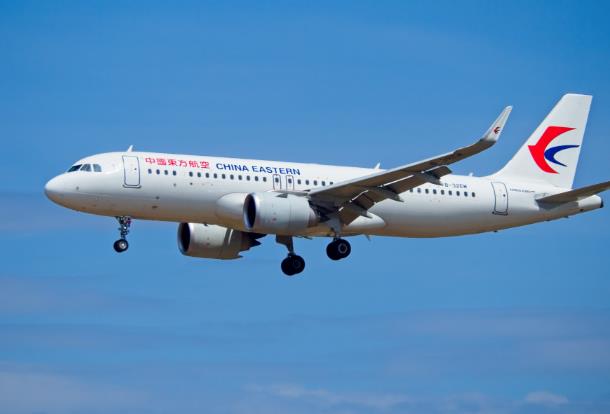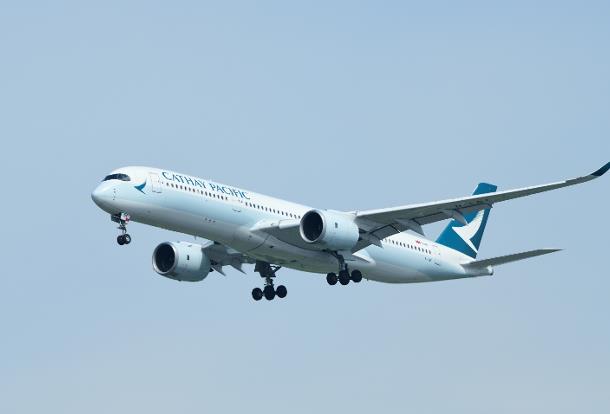ChinaTravelNews, Ritesh Gupta – Airlines across the globe are meticulously looking at reviving their operations. As costs rise again, can this be matched by revenue generation?
In this context, sales promotion campaigns by Chinese carriers are being closely followed. Several airlines including China Eastern Airlines, Hainan Airlines, Spring Airlines etc. and Fliggy, a 3rd party travel platform, have come up with attractive offers such as unlimited flight passes to stimulate demand and bookings.
An immediate benefit is that an airline has a decent sized cash-flow injection in the short-term. At the same time, as aviation expert Sandeep Bahl points out, the mindset and the associated behavior must be diligently evaluated. The traveler post-pandemic isn’t the same.
“Evolution in customer behavior is one of the most crucial aspects that must be considered because of the pandemic. If businesses are re-considering how to operate, then it has to be evaluated where travel fits in their plans,” said Bahl.
“In this era of unprecedented challenges, airlines that take a complete view of customer’s purchase cycle and interactions, and creating disciplined sales and revenue management teams to strike the right balance between capturing value through pricing but also being sensitive to and meeting customers’ changing needs will come stronger after the crisis. Similarly, every customer segment must be studied – friends/family visitors, students, leisure, business, MICE, government, medical etc.”
Dealing with challenges and generating cash
Airlines’ approach to what to offer in terms of their core product and air ancillaries is dependent on a number of variables, with a critical stand-out factor being reliable historical data. Since such data is not reliable, the industry has taken a couple of initiatives to combat the challenges.
The patrons of agile analytics are recommending that it is vital to count on updated external data on a quick turn-around basis. So evaluate real-time search and booking pattern, new customer cohorts, travel restrictions etc. As Amadeus recommended in its analysis, Covid 19 and 4 phases to airline revenue management (RM) strategy planning, evaluate the variance between planned scenarios versus real consumer behavior. The team has also worked on Active Forecast Adjustment, in which components of the demand forecast have segregated into two segments, “depending on if they are likely to be resilient or volatile (e.g. willingness-to-pay, booking curves) during the recovery period”.
Other than assessing demand for travel, airlines also have to re-start and adjust their capacity forecasting, route planning etc. Imagine a scenario, where a major city, for instance, Beijing recently chose to revise its decision and placed travel restrictions, then all of the capacity and routes have to be re-worked. All this only further complicates the entire to what to offer to travelers.
Many industry executives believe sales strategy of Chinese carriers is justified.
“This is a very meaningful try. First, it’s considered an effort to relieve airlines’ cash flow pressure, though the impact may be limited. But it inspired airlines to open up their mind and explore further measures to cope with the cash flow problem. Second, it’s an important move for airlines to break down their offerings and customers into different groups and it inspire the industry to improve their marketing and customer management,” Jeremy Zeng, General Manager, Worldwide Rewards told ChinaTravelNews.com in an interview. According to him, the immediate benefits are: garnering consumer’s attention, prepaid cash generation and demand improvement for some offbeat routes.
Referring to unlimited passes, he said such products could also cause some problems: “First, there may be some gap between consumers’ understanding of the detailed rules and what they really meant, thus causing customer complaints, which in turn may be enlarged through social media and harmful to the airline brands. Second, the offerings may have a negative impact on the high-end customers. Third, these low-price products to some extent are not good for the full-service carriers’ long-term brand, they are more often offered by low-cost carriers. Fourth, airlines may face actual loss if there’s been some false assumption in the financial model design of the product.”
Barcelona-based Inaki Uriz, co-founder and CEO at Caravelo mentioned that such initiatives are fine, but airlines also need to weigh in options carefully.
Uriz said, “(Sales campaigns) show that airlines (from China and in other markets) are serious about reshaping airline retailing and their relationship with customers. The airlines that stand out now and make changes will gain traction against their competitors. Who would sign up for two unlimited passes with two competitors in the same market?” He added, “However, we also realise that allowing passengers an unlimited amount of flights is risky business. Before the pandemic, we were moving slowly towards this trajectory, but now with the need to innovate and gain back market share, things are moving at a faster pace. It reflects that airlines are looking to capture value that was once neglected. But it’s interesting to see the shift in mentality, and start a change in retailing that is clearly much needed when airlines rely solely on one business model.”
It is being reported that after the launch of unlimited flight pass, China Eastern Airlines had its passenger load improved significantly, with an average rate of about 74% in the first two weekends. Uriz said these initiatives certainly stimulate demand as one can see from both AirAsia (also offered tickets for only 2,999 THB for unlimited travel across its domestic routes) and China Eastern’s unlimited passes and passenger load. Essentially, passengers want to fly - they still have plenty of reasons (if not more now) to do so. They will be visiting family and friends and holidaying, which they haven’t been able to do for months. However, they want to do this in a safe and hygienic way, so give them a good reason and they’ll pack their bags.
Subscription model and unplanned travel
Uriz highlighted that after experiencing the largest airline crisis in history, it’s time for airlines to be brave and innovate like never before.
“Airlines need to find their own special formula of subscription that works for them. There isn’t a one-size-fits-all model and we know that what works for one airline, wouldn’t work at another. Subscriptions also start a new and more robust relationship with the customer, giving you insights into their behaviour, trends and the true customer lifecycle,” said Uriz.
Caravelo acknowledges that whilst subscriptions are complex models, they are proven to bring in recurring revenue and increase customer loyalty.
Experienced industry executive Radoslaw Dutkowski, Principal Consultant at Branchspace, said that the immediate benefit of such initiatives is resulting loyalty as consumers will not look for other services as long as they are satisfied with the service. “There is almost no threat that the consumer will subscribe to services from another airline while having the active subscription on the same route or region as the airline product is nowadays usually standardised. Another benefit could be the brand value, especially when the airline has a significant number of subscribers.”
He also added that generally airlines have struggled with such travel products, for instance, owing to complex commercial systems that have many variables shaping the final product and its price. “However, I think that if the further evolution of this model enables the full customization of the final product by the user with maintaining relative price attractiveness, then it will become the first choice for frequently flying consumers looking for stable and certain services in a very unstable and uncertain environment. The application on the domestic market could be the best to start with,” said Dutkowski.
He also added that if on one hand there is an unplanned part of services utilization as by just having the subscription and the consumer may make impulsive decisions to fly that weren't taken into account when the subscription was purchased. On the other, that unpredictability regarding the time and frequency of flights creates a problem for revenue management usually based on historical data. “In this case there is no data that the airline could rely on, so they need to rebuild the entire model (like the allocation of the subscription to particular flight or ancillary contribution) and search for alternative data sources,” said Dutkowski.
Offers – looking beyond data for pricing
While pricing is an integral part of the overall decision-making and such campaigns are vital for improving the cash flow, more can be done in order to restore the passenger confidence.
Bahl also referred to four other aspects that can boost confidence:
1. Shopping and booking: Airlines should delve into how to assure passengers at the times of booking.
It is extremely important how e-commerce and travel technology companies answer some of the critical issues in the shopping flow (for example, improvising on UX, video content, real time or curated but engaging messaging and planning tools on a mobile app) to eradicate concerns related to health and safety during the actual journey. One thing is sure that customers rely a lot on social media for information and are thoughtful about how they engage with it. Customers are researching a lot and hence have expectation on wide range of services such as personalization, customization, exclusive or limited products, and brand collaborations, health and safety guidelines, destination information, new processes at airports etc.
2. Traveling is safe: “Is air travel safe?” is one question that must be addressed with factual information. “Can a travel merchant, including airlines, ensure all the aspects of the trip – flight, hotel, ground transportation etc. are meeting the requisite hygiene standards – say safe interaction/ safety screening at the airport or hotel. Is air travel safe?,” pointed out Bahl. The way in which airlines and airports are embracing new technology-related options for “touchless” travel across all the touchpoints has to be communicated.
“Also collaboration among various entities involved in one trip (from point to A to B) is going to be the key.” Bahl didn’t undermine the significance of sophisticated pricing and revenue management, but he asserted that without incorporating a holistic picture of today’s traveler into travel shopping, such promotional strategy wouldn’t yield the desired result.
3. Being careful with fee for certain services: Airlines must be careful about the wrong perception that emanates from certain practices. For instance, there might be an audience that is willing to pay for additional services, such as paying for adjacent seat. The message needs to be clear, be it via an ad or during the booking flow. “It is not the time to rip off customers,” said Bahl. “Airlines can be transparent with the booking load factor and inform the traveler about it. If an airline informs the traveler about the occupancy, for instance, if it’s at 60% then depending upon the response, they adjust their pricing since a certain percentage is going unsold.” He added that airlines in China have deployed wide-body aircraft in place of narrow-body ones for domestic routes to ensure social distancing in addition to stringent health-related measures on a popular route. All of this if communicated or visualized properly can only do away with any unnecessary negative connotation associated with flying.
4. Bring empathy into pricing: Think like a traveler and work out terms and conditions accordingly. Short term discounts or promotions helps to safeguard the perceived value of services and also be less likely to stimulate price wars among competitors, but also put the industry overall in a stronger position when the market recovers. In addition offer flexibility with modification and cancelation of a booking, and ensure a seamless refund process, said Bahl. Understanding and proactive assistance are vital during challenging times. Help the sales team tailor offerings and contracts to new situations and strengthen value-proposition communication.
Industry executives, both from China and across the globe have appreciated the recent moves by Chinese carriers. Since China is being looked at for its tourism-related recovery, it can further boost the confidence of the entire fraternity with more astute sales planning.




